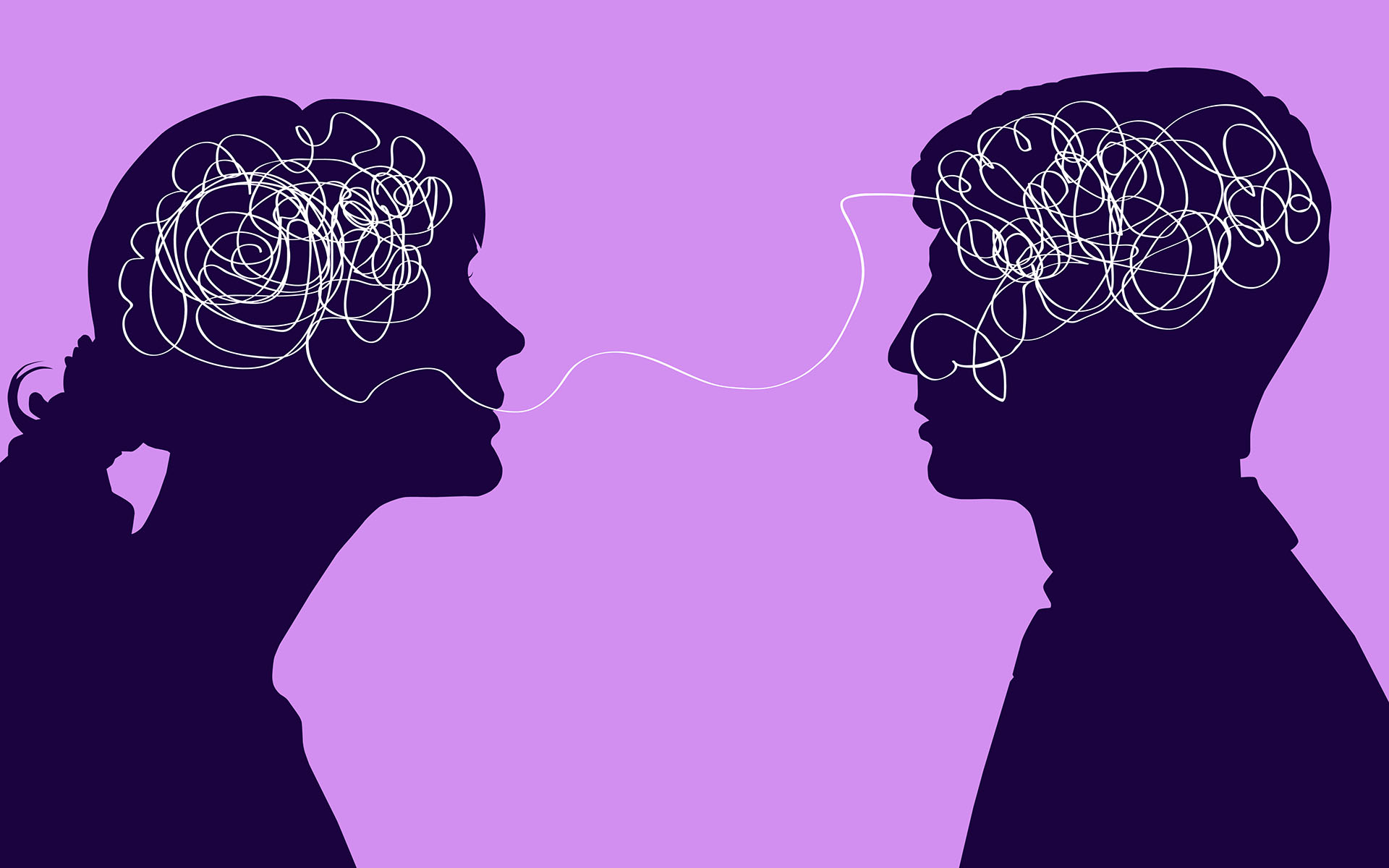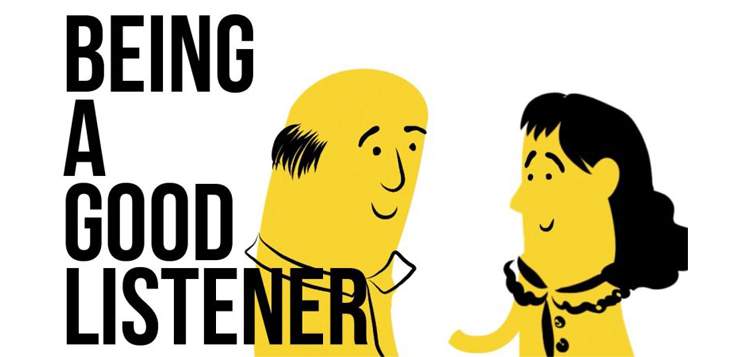We’ve all had the experience of saying something we regret, wishing the floor would swallow us up whole, or momentarily wishing we were flexible enough from yoga to literally insert our foot into our mouth. But beyond blunders and bloopers, we’ve all struggled to effectively communicate and be heard by others. If you are reading this, you may be wondering when and whether mindfulness can help.
Mindful and compassionate speaking isn’t just an ethical choice—mindful speech is simply more effective. What’s more, these guidelines are useful online, where anonymity and impulsivity can bring out less than the best in humanity. Practicing mindful speech may prove challenging, but the rewards of effective and positive communication that causes less harm to everyone are well worth it.
Mindful and compassionate speaking isn’t just an ethical choice—mindful speech is simply more effective.
While mindfulness can’t prevent every interpersonal oops, nor mend every political rift, we can follow a few guidelines for more mindful speech both online and off.
THINK: 5 Tips for Mindful Speech
Mindfulness wisdom often recommends reflecting on whether what we are about to say is true, kind, gentle, and timely. Here, I’ve adapted the popular mnemonic tool THINK (before you speak) with some variations. Many of these guidelines are probably familiar, but I’ve made a few tweaks that I think bring in a bit more mindfulness and compassion to ultimately make us better communicators.
Is it True?
Is it Helpful?
Am I the one to say it? What are the Intentions and Impact?
Is it Necessary, Now?
Is it Kind?
T: Is it true?
First and foremost, we want to speak the truth. In this way, we avoid harming others, and we also are less likely to ensnare ourselves in a web of lies, mistruths and the cognitive dissonance and guilt that come with them. And let’s face it, lying usually comes from an attempt to defend our self-image and identity, also known as our ego, which only creates more unhappiness.
What’s more, starting with a little lie, according to the research, does lead to a slippery slope where it gets more comfortable for our brains to tell bigger and bigger lies. Our limbic “alarm system,” which activates when we tell first a lie, diminishes with each new untruth, leading to more lies and more problems.
Saying what’s true is more than merely the opposite of lying. It’s the importance of speaking our truth.
At a more nuanced level, we want to speak important truths, because they might help and inspire others. Saying what’s true is more than merely the opposite of lying. It’s the importance of speaking our truth, and speaking truth to power, which themselves can be revolutionary and empowering acts. This can lead to the political change we’ve seen in truth and reconciliation processes around the world, restorative justice work being done in many of our communities and schools. It can also lead to social change, as it did in the #metoo movement in which survivors speaking their truth inspired millions to speak their truths and shake the foundations of how our culture perpetuates abuse.
H: Is it helpful?
Before we speak, we can reflect on whether it will actually be of benefit to anyone, including ourselves. One of my own habits I’m trying to break is gossiping. Gossip about others might be true, but it’s rarely helpful and often harmful. Even bragging might be true, but if it’s helpful at all, it’s only helpful to us—and more likely annoying and alienating to others. The same is true when we offer certain kinds of feedback to those around us: The words we choose might very well be true, but they might not exactly be helpful. Are you really in a situation right now where it is helpful to point out that the weather is lousy, or the traffic is bad?
I: Am I the one to say it?
Some statements may be true, and helpful—yet it may not be our business to give voice to them. As a therapist, I often am the one to say it, but with other roles in my life, I’m not. Gentle feedback might be better received from a coach than from a parent, and I’m certainly not going to be the one to teach my son calculus. On the other hand, I am often the best person to explain something emotionally challenging or to break bad news to my own family.
Sometimes we wonder if we are the one to speak up about an issue, so as to be an “upstander” rather than a “bystander.” Wise reflection helps us discern that as hard as it may be, it is our job to speak up. Still, the challenge can come in knowing if we are being baited or trolled into a fruitless keyboard battle or dinner-table debate, which is when these other “I” guidelines may help: What is my intention, and what was my impact? While impact may be unpredictable, we would do well to reflect on it in our speech, as well as reflecting on the personal intention behind what we’re itching to say.
N Is it Necessary, and is Now the time?
Even when other guidelines work, we might still ask ourselves if what we want to say is actually necessary. We can WAIT, a helpful mnemonic I learned in my training as a therapist, and simply ask ourselves Why Am I Talking?
Sometimes, the most mindful speech of all is no speech, but rather restraint of keyboard and tongue, or simply listening. Besides, we might also communicate through our body language and facial microexpressions in ways more revealing than our words. More of what we really mean might get across if we bite our tongue for a minute or two.
All too often, we speak just to fill the space or alleviate our anxiety about silence with idle chatter. A friend may come to us seeking support, and in many cases the reality is that the best form of support is our silent and compassionate presence. It may be our ability to fully and mindfully listen and validate, rather than offering a solution that helps most. How much do we really have to say, at all? Experiment with using fewer words, and see the results.
It is also in our silences and pauses in conversation that we create the space for budding insights and ideas to emerge.
Silence is all too rare in our busy world, yet remains an opportunity for an intimate moment. We used to joke in my family that for my grandmother, the opposite of speaking was waiting, rather than listening. It is also in our silences and pauses in conversation that we create the space for budding insights and ideas to emerge.
Also keep in mind that timing is everything. Is having the “drugs/sex talk” with your kids more helpful before or after they’ve begun experimenting? There’s a time for everything, and science backs this up: Researchers have examined the best times for things like asking for a raise, or when we tend to have the most effective work meetings.
K: Is it Kind?
In the end, feedback will be best received if it’s presented in a way that’s patient and kind. When someone is feeling attacked, their fight-or-flight response overrides their ability to take in new information. Under threat real or imagined, our brain shuts down the areas where we take perspective, see the big picture, understand where someone else might be coming from, and access our critical interpersonal and communication skills. Harsh words or tone may change how someone is acting in the moment, but often lead to collateral damage, and rarely do they create change in the long term.
Another aspect of kindness to consider is whether our conversation is ultimately positive or negative. I’ve noticed in myself and others that it’s often easier to default to negativity than positivity, especially when we are trying to connect. We tend to think of adolescents as being dismissive of everything, yet as adults we’re not always much more mature in this regard, as we often grumble to each other about spouses or supervisors rather than focusing on the positive as a means of connection.
As a challenge, try paying attention to this in your regular interactions, whether they are on the whole more positive or more negative. The answer might surprise you. Here, the old adage “if you don’t have anything nice to say, don’t say anything at all,” is worth examining—see what arises in that quiet.
Now, let’s see if we can get the WAIT and THINK guidelines in place before the results of the US election!
Ready to walk the mindful talk? Here are some final questions to consider:
- How might these guidelines be helpful in your personal life around difficult conversations? How about in your work life?
- Do any of these THINK guidelines stand out to you, as areas that might need more attention from you? Why do you think that is?
- How much of your speech involves talking about other people?
- Try bringing more space to your conversations, between your words, and between your responses with the other person and see what you notice.
- In conversation, how much do you connect with others around positive things (as opposed to negative topics or comments)?
read more
How You Can Help Others by Practicing Mindfulness
Research shows that meditating benefits everyone around you—whether you’re in the same household or connecting virtually.
Read More
Having a Tough Conversation? Try This 12-Minute Meditation to Reset
It’s not always the case that our formal mindfulness practice carries seamlessly into daily life—especially in conversations that spark tension. Shalini Bahl-Milne offers a practice to help you ensure you can be mindfully present for these difficult moments.
Read More
How Kindness Can Get Lost in Communication
Founding Editor Barry Boyce muses on the messiness of communicating, and how finding the deeper meanings of words may require some inner searching.
Read More











